White Coat Black Art59:15White Coat, Black Art Book Talk
A single book can have the power to help us heal. A panel of celebrated physicians and nurses, along with members of the audience, weigh in on the books that inspired them at a live event recorded at Hamilton’s Central Library, hosted by Dr. Brian Goldman.
More than 170 book lovers in Hamilton, Ont., had the chance to attend on May 25 a special live taping of a library-centric episode of White Coat, Black Art.
Hosted by Dr. Brian Goldman at the Hamilton Public Library’s central branch, White Coat, Black Art Book Talk invited panellists and audience speakers to share book recommendations that had a positive influence on their mental or physical health.
Learn more about the White Coat, Black Art Book Talk recommendations below.
Palaces for the People: How Social Infrastructure Can Help Fight Inequality, Polarization, and the Decline of Civic Life by Eric Klinenberg
Written by sociologist Eric Klinenberg, Palaces for the People examines how shared spaces — like libraries, churches and parks — can help societies better connect and overcome divisive strife.
“I’ve been really concerned recently with how isolated and divided we’ve become in our societies,” said Dr. Jane Philpott – dean of health sciences at Queen’s University, a former federal health minister and author of Health for All: A Doctor’s Prescription for a Healthier Canada – who recommended the book.
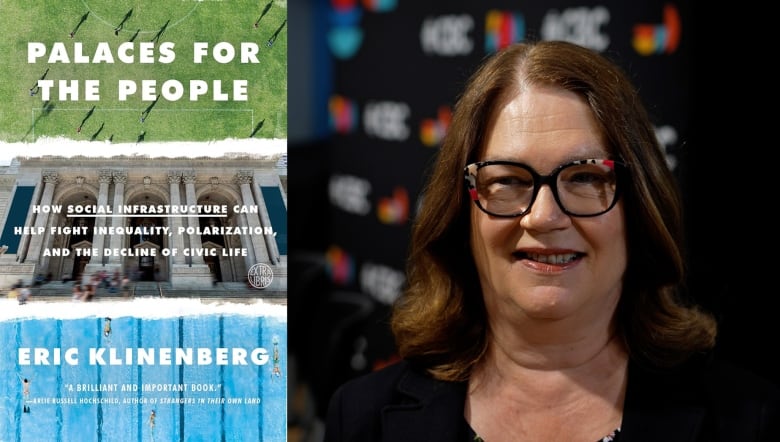
“We need more spaces like libraries, like parks – even our health centres, I think, can be much more open spaces where people can gather together.”
Better: A Surgeon’s Notes on Performance and Complications: A Surgeon’s Notes on an Imperfect Science by Dr. Atul Gawande
Complications, published by surgeon Dr. Atul Gawande in 2002, examines the uncertainty that plagues medical practitioners – including how much input patients should have in their care, as well as how young doctors can gain experience without harming lives.
Better, published in 2007 and also written by Gawande, looks at how medical practitioners work to improve their craft — while acknowledging the numerous mistakes that are inherent to the field.
“It really framed the way that I wanted to start my own career,” said Dr. Sheila Singh, a professor and head of neurosurgery at McMaster University, who recommended both books.
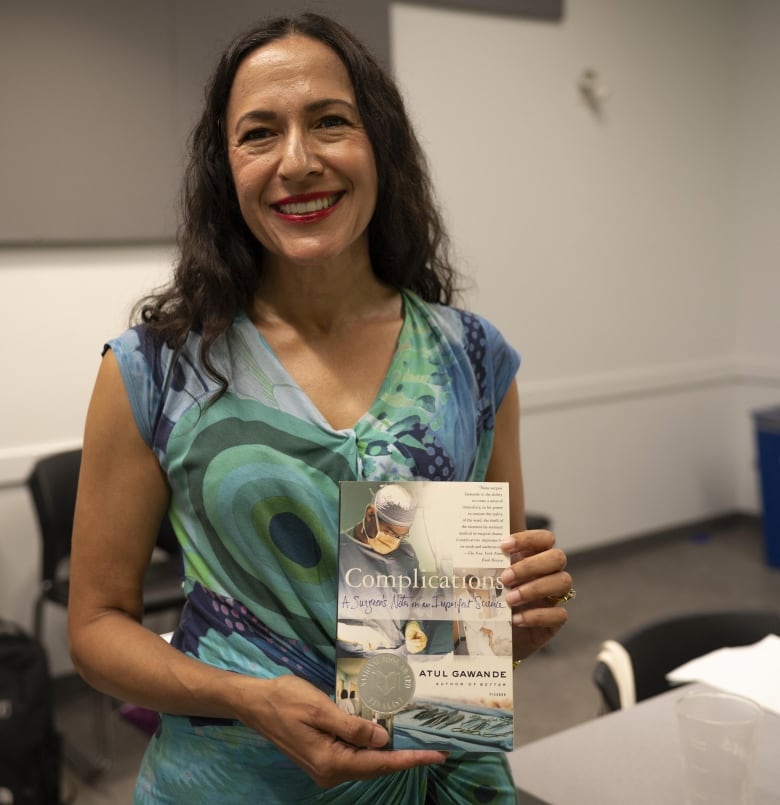
Singh pointed to shunt procedures as an example of how Gawande’s books helped her find better solutions to everyday problems.
To reduce complications, Singh and her team proposed moving shunt surgeries earlier in the day, when operating rooms are at their cleanest, and placing a surgery-in-progress sign on operating room doors.
She said “simple” interventions led to Hamilton Health Sciences’ infection control team congratulating Singh and her colleagues for halving shunt infections rate.
The Book of Boundaries by Melissa Urban
Melissa Urban’s The Book of Boundaries helps readers establish clear limits on the energy they spend catering to the needs of others.
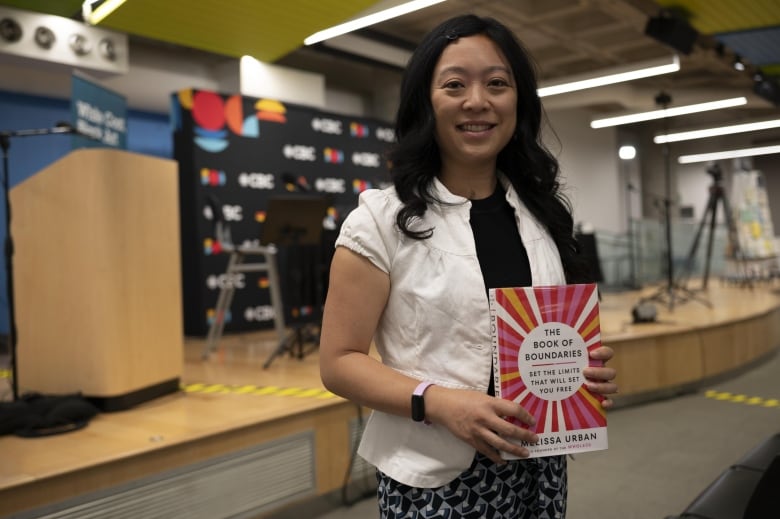
“My biggest weakness is I take on too much and I don’t know how to say no,” said Sara Fung, a registered nurse, author and podcast host, who recommended the book.
“I think really, when it comes down to it, it’s because we don’t know how to set boundaries with other people … and so this book really spoke to me.”
The Light We Carry by Michelle Obama
Former U.S. first lady Michelle Obama’s second book The Light We Carry offers readers honest, personal stories from her own life, providing guidance on how to adapt to change.
Amie Archibald-Varley, a registered nurse, author and podcast host, recommended the book, which she read during the COVID-19 pandemic.
Incidents like the death of George Floyd in 2020 caused uncertainty in her life, and reading Obama’s book helped Archibald-Varley learn how to be more compassionate to herself.
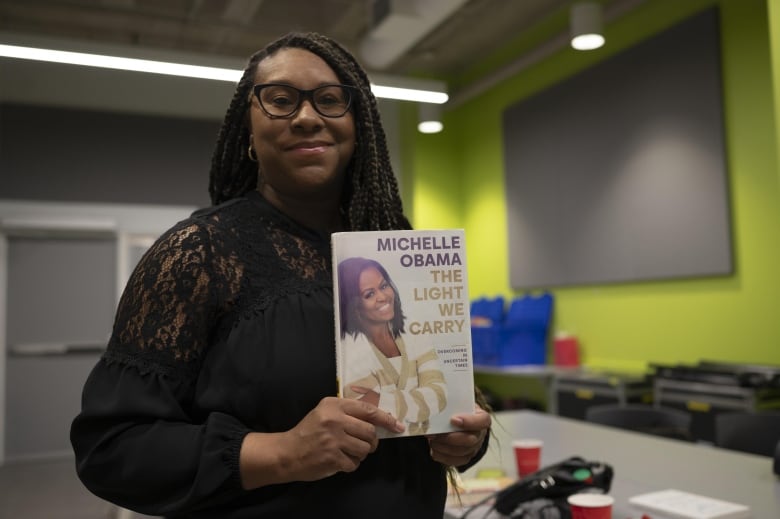
She now begins her days much differently, by talking to herself in the mirror.
“[I] wake up and say, ‘Good morning, Amie, how are you doing? You’re looking wonderful today.'”
Members of the audience also weighed in on the books that inspired them.
Breath by James Nestor
Written by James Nestor, Breath delves into pulmonology, highlighting the ways that nasal breathing can improve our physical and mental health.
“I had the firsthand experience of feeling what my breath can do for my health, for my quality of life, my energy and my passions,” said Chris Eddy, an audience member at the library event who recommended the book.
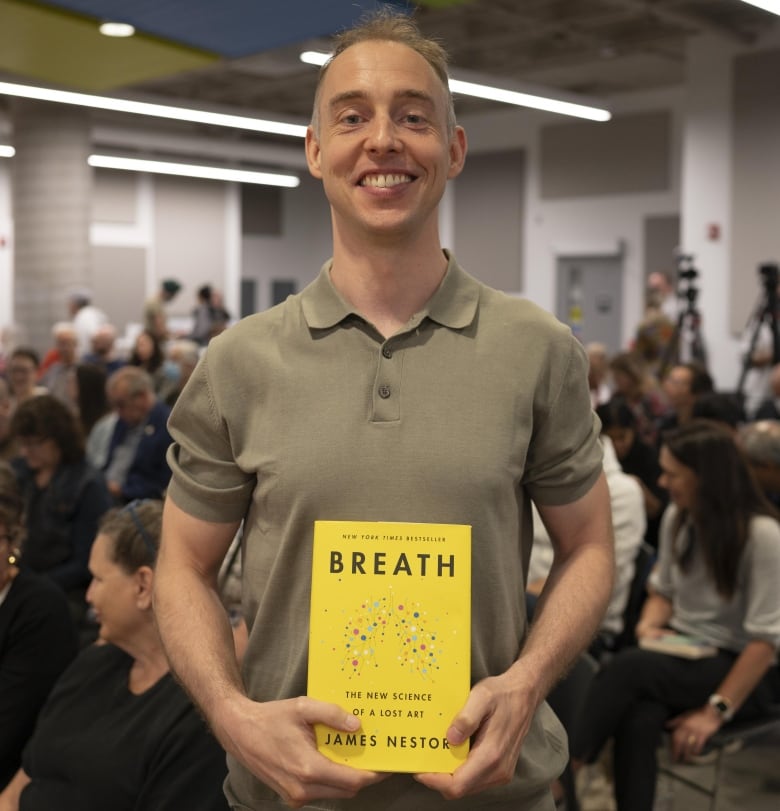
Eddy read the book while he was transitioning from a corporate job.
Nestor’s book taught Eddy to consciously think about breathing through his nose. Eddy even now tapes his mouth shut before he goes to sleep to improve his breathing.
When Breath Becomes Air by Paul Kalanithi
Paul Kalanithi’s When Breath Becomes Air explores the neurosurgeon’s journey with Stage 4 lung cancer, examining cancer care in the U.S. from the perspective of a physician-patient.
“This little book was pivotal to me [on] my cancer journey,” said audience member Leslie Born, who made the recommendation. “I was four rounds into chemotherapy for advanced ovarian cancer Stage 3 … It was life-shattering,”
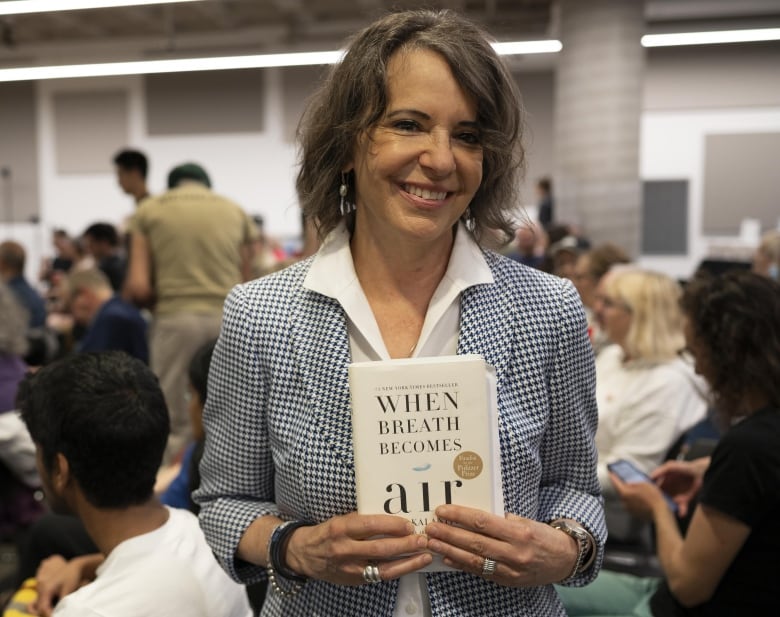
After connecting with the book’s message of resilience, Born now regularly goes on canoe trips with her aunt Susan Barreca.
Discovering Eden: A Lifetime of Paddling the Arctic Rivers by Alex Hall
Discovering Eden is river guide Alex Hall’s autobiographical examination of a lifetime exploring Northern Canada’s waterways.
Susan Barreca, an audience member who recommended the book, found inspiration in Hall’s story about a blind man who became an avid river paddler.
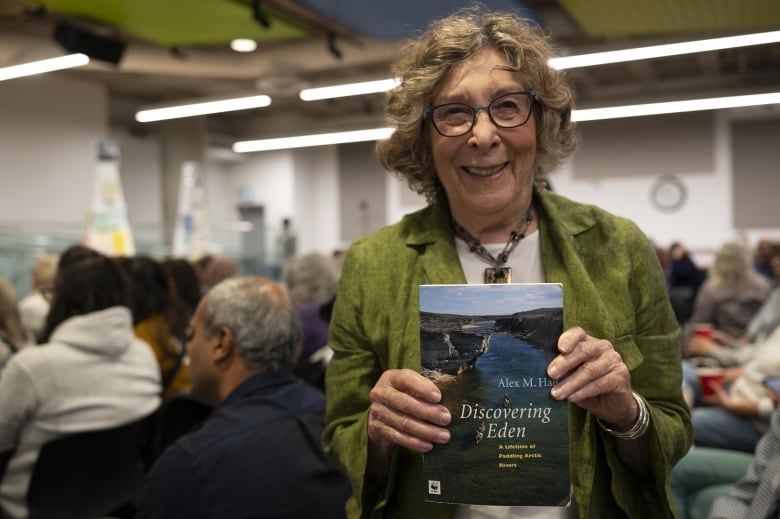
“What I realized was that Alex had no tolerance for lily dippers, so I took myself to the gym four days a week,” said Barreca. “I hired a CrossFit trainer who worked on my balance and on my strength, and I said to Leslie, we have to become river girls.”
Leslie and Susan have paddled rivers in seven provinces and all three Canadian territories.
This Is Assisted Dying: A Doctor’s Story of Empowering Patients at the End of Life by Dr. Stefanie Green
Canadian doctor Stefanie Green’s This is Assisted Dying is a study of medical assistance in dying (MAID), helping readers navigate the ideologies behind MAID, while exploring why someone living with illness might choose to end their life.
“It came at a very trying time in my life … my mother-in-law was dying of inoperable cancer,” said Annette Hamm, an audience member who co-hosts CHCH Hamilton’s weekday morning program and who recommended Green’s book.
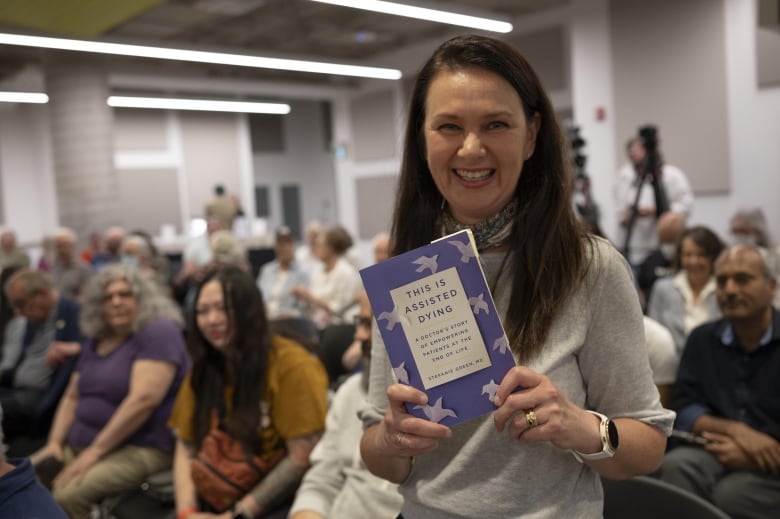
Hamm’s mother-in-law ultimately chose hospice care rather than MAID, but the book helped Hamm engage with her mother-in-law’s death journey.
“It helped me realize there is such a thing as a beautiful death.”
Siddhartha by Hermann Hesse
Hermann Hesse’s ninth book Siddhartha is a 1922 novel about the eponymous protagonist, who crosses paths with the real-life Buddha on a quest for spiritual enlightenment.
Audience member Ravi Selvaganapathy read the novel after an entrance exam for a prestigious Indian engineering university.
“I failed the exam and this was very devastating for me,” he said, learning from the crushing experience.
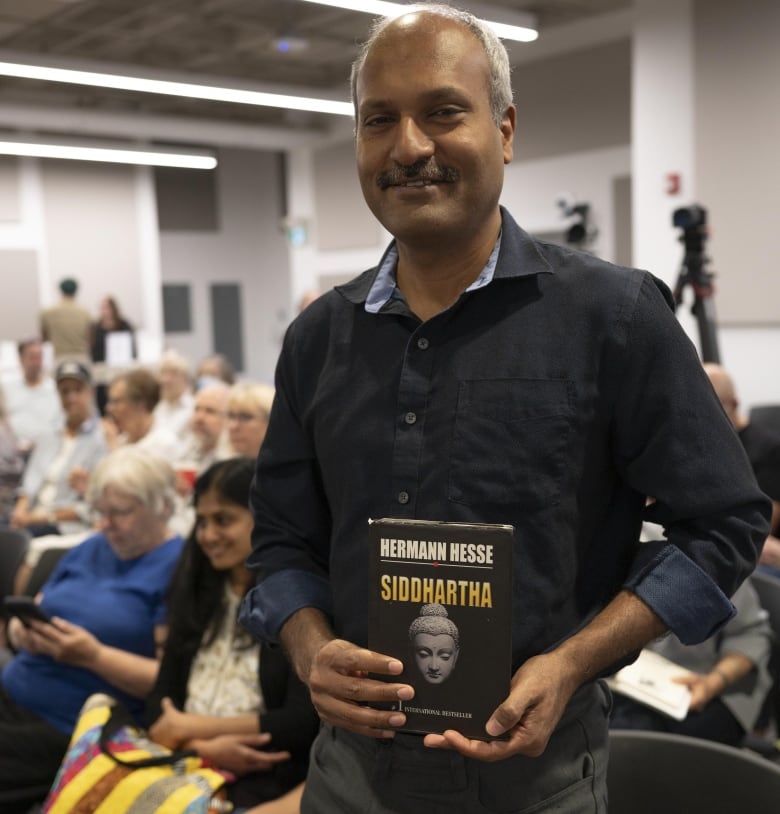
Selvaganapathy now recommends that people be “more of an Indiana Jones or a Jacques Cousteau than Alexander the Great,” to focus on life’s journeys, rather than individual destinations.
Looking for some powerful book recommendations? Read the full list of books recommended by audience members, panellists and Hamilton Public Library staff for White Coat, Black Art Book Talk


